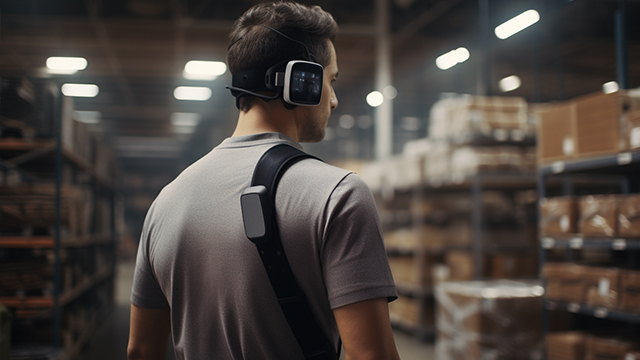Healthcare Execs Reveal Two Areas Where Robots Can Help
The healthcare industry is complex. With escalating costs, an aging population, and labor shortages—providers are under immense pressure to improve...
BlueStar's diverse portfolio offers unparalleled access to premium products and services that drive business growth and success. From state-of-the-art hardware to advanced software solutions, our portfolio is designed to empower businesses with the tools they need to thrive in today's competitive landscape.
Our vertical-based content focuses on different industry technologies, solutions, and insights.
A true VAD offers top-notch pick, pack and ship services, and provides programs and services that add value to the distributed products that increase their value or worth.
The BlueStar DifferenceWarehouse wearables can help operations increase productivity, efficiency, and accuracy — if technology solutions providers implement them correctly.
Like mobile devices, warehouse wearables can be used to perform various tasks such as scanning barcodes, communicating, and updating inventory – but unlike mobile devices, they keep employees' hands free. This makes lifting cartons, climbing ladders, using equipment, and other tasks safer and more ergonomic, reducing accidents and injury. But to reap the benefits, warehouse operations need to overcome challenges related to implementation. Warehouse operators need technology solution providers' expertise to implement warehouse wearables successfully.
5 Warehouse Wearables Challenges to Overcome
Approaching the challenges to wearables adoption proactively will lead to better results for your clients and can help you overcome potential objections as you outline a path forward. Some common challenges include:
With so many technologies to choose from, choosing the proper devices may be a difficult decision for warehouse operators. Options include:
However, not every wearable is suitable for every use case or every workforce. For example, voice control headsets may be ideal for picking in one operation, but AR headsets might be the best choice for another. On the other hand, shipping and receiving may benefit more from wrist or ring scanners that ensure accurate shipments or quickly verify the correct goods in the right quantities at receiving.
Also, advise your clients to consider how employees in each job description work. If they use wearables and additional devices, they can lose rather than gain efficiency.
Warehouse wearables can boost productivity, but only if a reliable wireless network is there to support continuous function. Unreliable or intermittent connectivity will lead to interruptions and lower productivity. It can also pose safety concerns if wearables intended to keep the lines of communication open with employees fail.
The best technology in the world won't do your clients any good if their employees don't use it. Most wearables are intuitive and easy to learn, so the most challenging part for your clients may be getting their employees to accept the change. As a trusted business advisor, work with your clients on effective change management techniques, such as clearly explaining the "why" behind the change, encouraging employees to share their feedback and concerns, and stressing the value that warehouse wearables can provide, such as eliminating juggling devices while they work and eliminating paper-based processes.
Many wearables need some development to integrate them with the warehouse management system (WMS) or other applications your clients use. When your clients choose the warehouse wearables they want to pilot for their operations, test before implementation to ensure seamless integration so they can communicate reliably and share data with the people and processes that need it.
Connecting more devices to the network can create new vulnerabilities. Wearable devices can be targets of malware, phishing, and other attacks, so prioritizing security is vital. Standard security practices like employee education, regular password, and antivirus software updates are tables stakes. However, technology solutions providers need to vet devices for security features and help clients choose the most secure ones. You can also offer monitoring and security scanning to alert your clients to potentially malicious activity.
Provide the Benefits and Eliminate the Downside
Implementing warehouse wearables can improve productivity, efficiency, and safety. They can also contribute to greater picking, fulfillment, and shipping accuracy, resulting in greater customer satisfaction.
But your clients need your knowledge and guidance to deploy a solution that fits the use case and for employees. Maximize the value these solutions offer by overcoming challenges and implementing them successfully.

The healthcare industry is complex. With escalating costs, an aging population, and labor shortages—providers are under immense pressure to improve...

Learn how technology solutions providers (TSPs) can capitalize on emerging trends in sustainable fulfilment, smart logistics, and secure remote...

Whether ensuring compliance with GDPR, reducing vulnerabilities through robust encryption, or streamlining implementation, TSPs can provide a...
